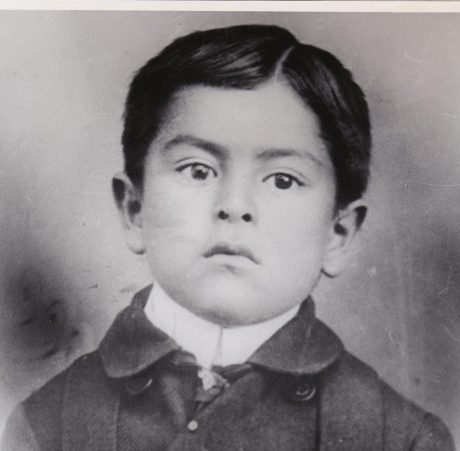Doors: 5:30
Event time: 6:00

The Maestas Case is the earliest known successful struggle by Mexican-American to end school segregation in the United States. All but forgotten for over a century, the lawsuit was filed in 1913 and took place in southern Colorado, a region of deep historical roots for Hispanics.
This three part presentation will be in a panel format with Retired Judge Martín Gonzales setting the case in its unique historical context and legal background. Dr. Gonzalo Guzmán will talk about Perspectives on Pride and Persistence in Ending Public School Segregation and other examples of Latino educational segregation. Dr. Antonio Esquibel will talk about the Sociedad Protección Mutua de Trabajadores Unidos’ (SPMDTU) involvement in the case and will perform “El Corrido de Francisco Maestas”.
A segregated school for Mexican-American Children was created with All Mexican-American children regardless of English proficiency required to attend. The plaintiffs (Mexican-Americans) argued their children were racially distinct as Mexicans and that this was prohibited under the Colorado Constitution as improper public schools segregation of children based on color and race. Defendants (school board members and the superintendent) countered that these children were Caucasian and no different from other White children in the school district. Further that the Mexican-American children were segregated to meet their linguistic needs.
District Court Judge, Charles Holbrook, ruled in 1914 that to the extent that many Mexican-American children were English speaking, the segregation of English language proficient Mexican-American children was improper and they had the right to their chosen School.
Dr. Gonzalo Guzmán:
Dr. Gonzalo Guzmán is from Wapato in the Yakima Valley of Washington State. He is an assistant professor of educational studies at Macalester College in Saint Paul, Minnesota. His research focuses on the racialization and educational histories of Latina/o/x communities in the Mountain States and Pacific Northwest of the US. His work has been published in the Journal of Latinos and Education, History of Education Quarterly, Education’s Histories, Critical Readings on Latinos and Education, and Annals of Wyoming. Additionally, his research and commentary has been featured in Colorado, Washington, and Wyoming NPR and PBS affiliate stations, as well as the National Park Service. He is currently finalizing his first book manuscript tentatively titled: Education for a New Race: Making Whites and Schooling the Mexican in Greater Juan Crow. Guzmán’s research led to the rediscovery of the Maestas case.
Dr. Antonio Esquibel:
Dr. Antonio Esquibel has been a member of the La Sociedad Protección Mutua de Trabajadores Unidos (SPMDTU), the oldest civil rights organization in the United States, for 55 years. He is currently the Secretary of the Concilio Superior, its governing board. The SPMDTU was founded in 1900, 123 years ago in Antonito, Colorado. He represents the SPMDTU on the Maestas Case Commemoration Committee. He has composed “El Corrido de Francisco Maestas”/”The Ballad of Francisco Maestas”, which immortalizes the case. Dr. Esquibel is an Emeritus Professor of Spanish, former Vice President of Student Affairs and former Trustee of Metropolitan State University of Denver.
Judge Martin A. Gonzales:
Judge Gonzales is a fourth-generation resident of the San Luis Valley. He obtained his JD from the University of Colorado Law School in 1978. He engaged in an extensive private civil practice his appointment to the bench. He was the first Hispanic County Judge for Alamosa County, Colorado. Appointed in in 2007 He became the first Hispanic District Court Judge for the 12th Judicial District which encompasses the whole of the San Luis Valley. His position as District Court judge makes him a successor judge to Judge Holbrook, who issued the order in the Maestas Case. He is now retired and with the Senior Judge program for the Judicial Branch. He is the chairperson of the Maestas Case Commemoration Committee and a member of the Colorado Council on Restorative justice.
This program is supported with funding from the generous bequest of Betsy Hitchcock.
